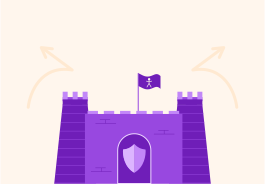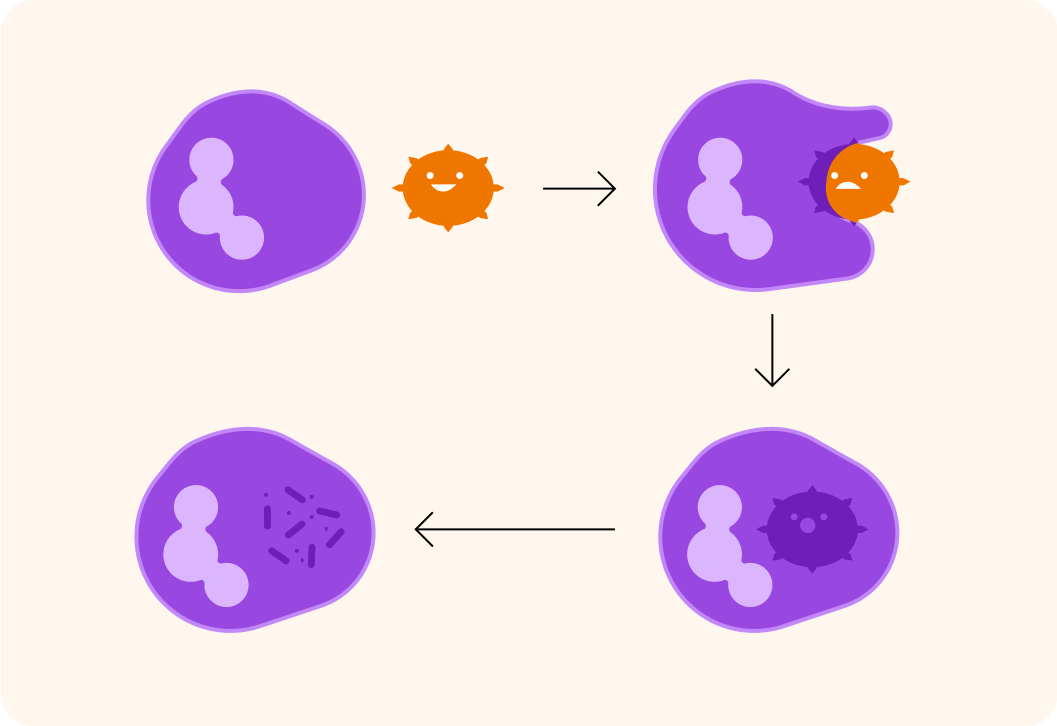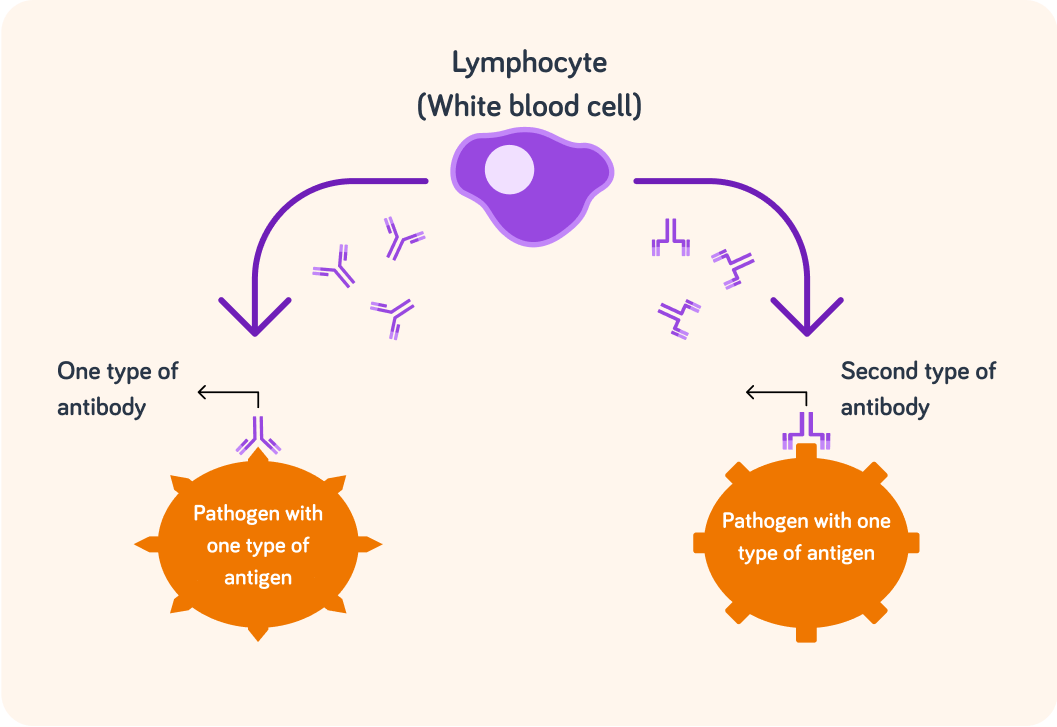YOU ARE LEARNING:
Immune System

Immune System
The immune system releases lymphocytes in response to pathogens, which themselves release antibodies that recognise specific antigens on the pathogen surface. Memory cells are created to speed up future immune responses.
If a pathogen is able to get through our first line of defence, which barriers will it have passed through? Pick all the options you think are correct.

You can select multiple answers
If a pathogen passes through the physical and chemical barriers, it can enter the blood and travel around the body, causing infection.
Luckily, the body has a second kind of defence system - the immune system. Which blood cells are active in the immune system?

The immune system has two main types of cell that help to keep us healthy. One type of cell is called a phagocyte. **** The term phago- comes from the Greek and means 'to eat'. What do you think phagocytes do?

Phagocytes travel in the blood.
They are in fact attracted to pathogens. When they come into contact with one, phagocytes engulf pathogens and their enzymes digest it!

Phagocytes travel in the blood. They are in fact attracted to pathogens. When they come into contact with one, phagocytes engulf pathogens and their enzymes digest it!
Phagocytes will ingest any unusual material that is not meant to be in the blood. Do you think their response to pathogens is specific or non-specific?

The second type of cell produces antibodies. Antibodies produce a targeted response to pathogens. Do you know what these cells are called?

When lymphocytes detect pathogens...
They do that by detecting molecules, called antigens, on the pathogen's surface. The lymphocytes produce antibodies in response to these antigens.

Is this a specific or non-specific form of defence?


So when lymphocytes detect a foreign body (one that isn't meant to be in your body), it produces antibodies.
These antibodies are made to bind specifically to the antigens on the pathogen's surface.

Lymphocytes and phagocytes work together pretty efficiently. Lymphocytes produce antibodies that make pathogens clump together. Phagocytes digest them and remove them from the body.
So what is it that makes me feel ill when my body is infected?
Some pathogens may release toxins into your blood and these can make you feel unwell. Lymphocytes produce a molecule in response to the toxins. What do you think this molecule is called?

This process may take a couple of days.
This is why you might feel ill for a while, and then start to get better - the white blood cells are working to get rid of the toxins and the pathogens in your body that produce the toxins.
After encountering a new antigen, your body produces cells that will remember and recognise the antigen much more quickly next time. What do you think these cells are called?

We say that you are now "immune" to the disease...
because next time a pathogen with those specific antigens enters your body, memory lymphocytes will have a rapid and strong response against the pathogens, and you will not get ill.
